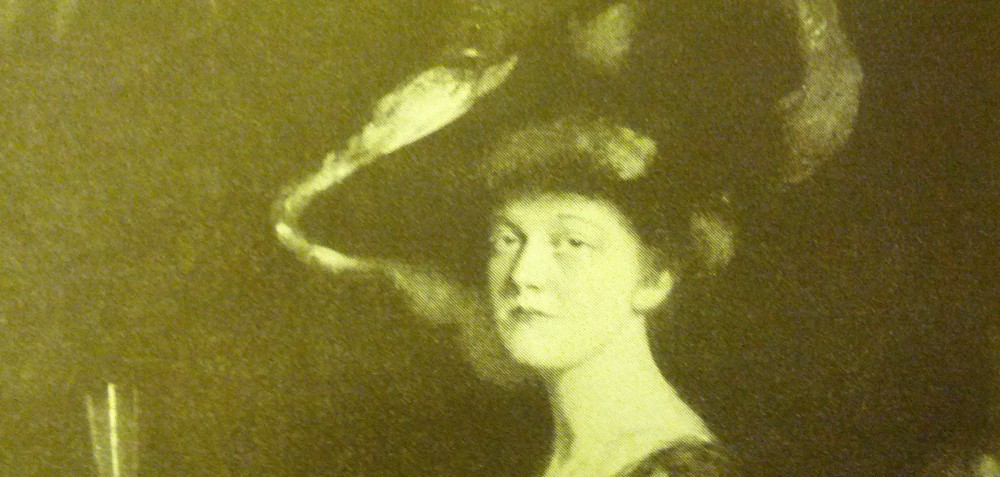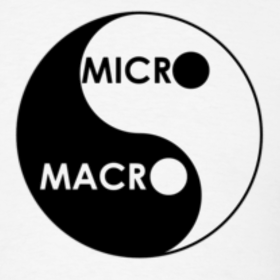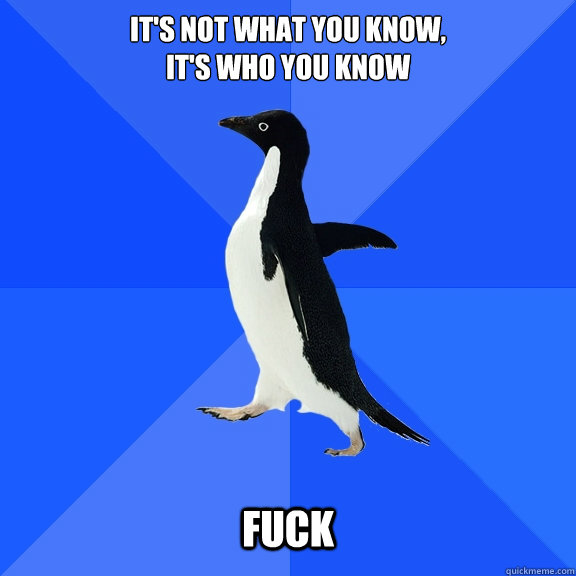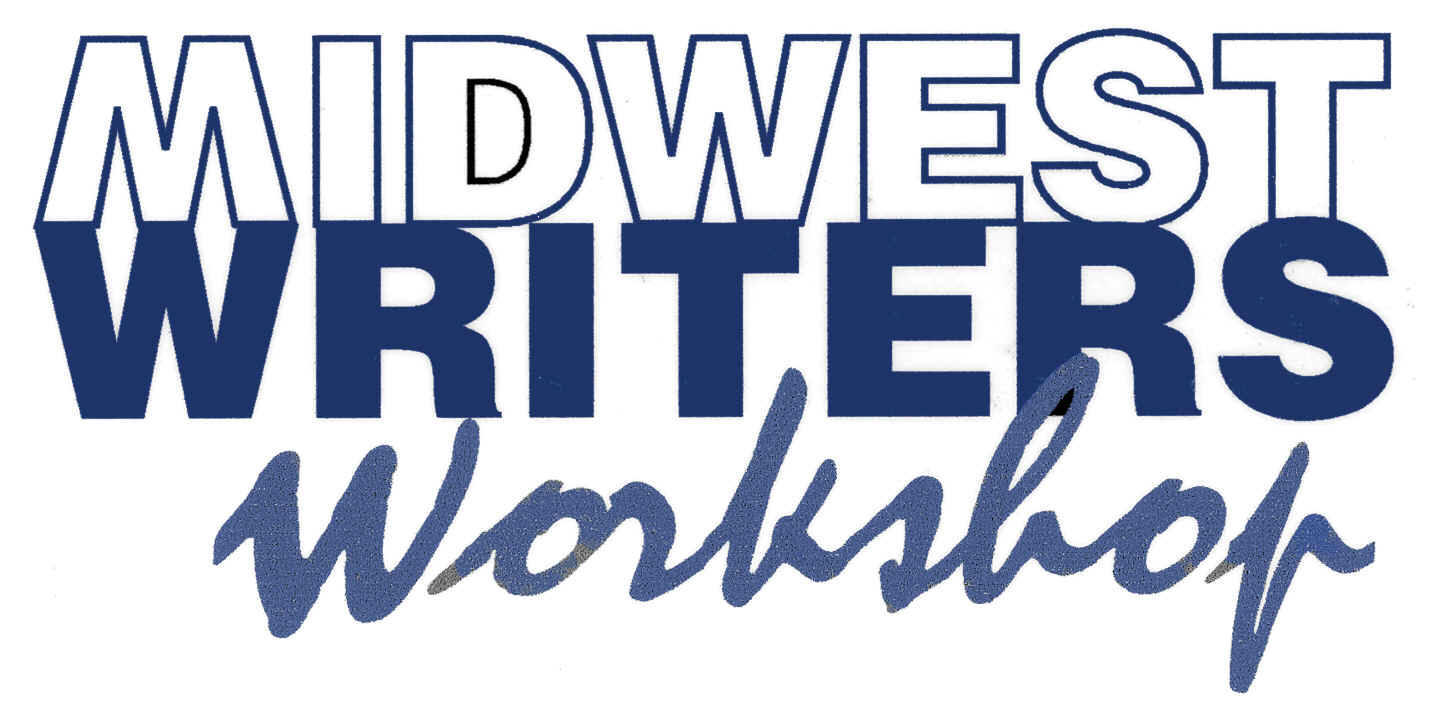You can find this week’s “Big Thing” post over at the Literary Citizenship blog. My friend David Walton shares his advice about book reviews: how to write them, how to sell them, and why we need them.
On Being Findable
Literary Citizenship Writing My husband and I have started a little website business, of sorts. We’re not looking to build or expand, mind you. We have one client, my yoga teacher/massage therapist. I’ll call her Violet. She runs a studio out of her lovely historic home. I go there a few times a week and do yoga in her dining room and get acupressure massages in a little room off the kitchen. Violet’s been doing this work for over 30 years, and working with her has made a big difference in my life.
My husband and I have started a little website business, of sorts. We’re not looking to build or expand, mind you. We have one client, my yoga teacher/massage therapist. I’ll call her Violet. She runs a studio out of her lovely historic home. I go there a few times a week and do yoga in her dining room and get acupressure massages in a little room off the kitchen. Violet’s been doing this work for over 30 years, and working with her has made a big difference in my life.
The Findability of Violet
I only found Violet because a friend of mine, Nancy, introduced me. I would never have found Violet on my own. There would have been no way to find her.

See, I knew Nancy did yoga, but I didn’t know where. So I Googled “Yoga Muncie.” This made me very depressed.
Go ahead. Try it.
The Agony and the Ecstasy of Making Things Up
Mrs. Cole Porter WritingThis week, my novel writing students have to think about whether or not they are “Outline People” or “No Outline People,” or (more likely) something in between. I decided to write about this, too.
What’s my process?
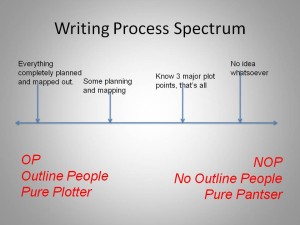
Here’s how I know I’m a plotter.
This is how I taught myself to write a novel. By writing a nonfiction novel rather than a fictional one, I didn’t have to “make up” plot. Actually, I had more plot than I knew what to do with.
Plot as a Given
What I’m Working On
Mrs. Cole Porter Writing
I’ve been “tagged” in the Next Big Thing Blog Hop (this meme-type thing that’s been making the rounds) by writer/editor Jill Talbot (who was tagged by Barrelhouse editor Tom McAllister, who was tagged by writer Katherine Hill, etc.).
I have never met Jill Talbot IRL, but we like to talk about the hazy line between fiction and nonfiction. She edited the anthology Metawritings and was kind enough to include me.
(I think she’d like that I describe my WIP as “nonfictional fiction.”)
Here are her excellent answers to the 10 Blog Hop questions.
And here are mine.
What is your working title of your book (or story)?
Mrs. Cole Porter
Where did the idea come from for the book?
Cole Porter and I share the same hometown, Peru, Indiana.
What genre does your book fall under?
I like to think of it as nonfictional fiction. A biographical novel.
Which actors would you choose to play your characters in a movie rendition?
Well, Cole and Linda have already been played by Cary Grant and Alexis Smith (Night and Day, 1946) as well as Kevin Kline and Ashley Judd (De-Lovely, 2004).
Whoever plays Linda in an adaptation of my book would have to be able to play her both old and young. I’m going to go with Laura Linney, who’s already played a similar character in The House of Mirth.

What is the one-sentence synopsis of your book?
“During the Gilded Age, poor, beautiful, and naïve Linda Lee marries the playboy son of a robber baron, a high-profile match she survives by learning important skills which she brings to her second marriage—to a talented but unknown gay composer from Indiana named Cole Porter.”
Will your book be self-published or represented by an agency?
If by this question you mean, do I have an agent? then yes, I have an agent, the amazing Sarah Burnes at the Gernert Company.
How long did it take you to write the first draft of your manuscript?
Still working on the first draft.
What other books would you compare this story to within your genre?
It’s got an outer and inner frame, and there’s a bit of archival detective work going on, a bit like A.S. Byatt’s Possession.
Maybe it’s also a bit like Laura Moriarty’s The Chaperone, which I read this summer and loved to death.
This isn’t a novel, but it definitely inspired me: Coco Before Chanel. A possible backup title to my book might be Linda Before Cole. Or Cole Because of Linda Before Cole.
Who or what inspired you to write this book?
There’s a little-discussed anecdote in every Cole Porter biography: he blew up his wife’s mansion in the Berkshires when she passed away. Not only that, he moved his bachelor’s cottage onto the foundation and expanded it to the mansion that’s there today.
His biographers all say Cole did this out of grief. I have other ideas.
What else about your book might pique the reader’s interest?”
In the course of doing research for the novel, I discovered that 86 volumes of her personal scrapbooks were held at Harvard. I’ve made two research trips to the Houghton Library to study them.
And now I’m tagging four more writers. I wanted to keep it local; these are all writers who live within an hour of my house in Muncie, Indiana. You can read about the books they’re working on next week!
What I’m Working On
Mrs. Cole Porter WritingI’ve been “tagged” in the Next Big Thing Blog Hop (this meme-type thing that’s been making the rounds) by writer/editor Jill Talbot (who was tagged by Barrelhouse editor Tom McAllister, who was tagged by writer Katherine Hill, etc.).
I have never met Jill Talbot IRL, but we like to talk about the hazy line between fiction and nonfiction. She edited the anthology Metawritings and was kind enough to include me.
(I think she’d like that I describe my WIP as “nonfictional fiction.”)
Here are her excellent answers to the 10 Blog Hop questions.
And here are mine.
What is your working title of your book (or story)?
Mrs. Cole Porter
Where did the idea come from for the book?
Cole Porter and I share the same hometown, Peru, Indiana.
What genre does your book fall under?
I like to think of it as nonfictional fiction. A biographical novel.
Which actors would you choose to play your characters in a movie rendition?
Well, Cole and Linda have already been played by Cary Grant and Alexis Smith (Night and Day, 1946) as well as Kevin Kline and Ashley Judd (De-Lovely, 2004).
Whoever plays Linda in an adaptation of my book would have to be able to play her both old and young. I’m going to go with Laura Linney, who’s already played a similar character in The House of Mirth.
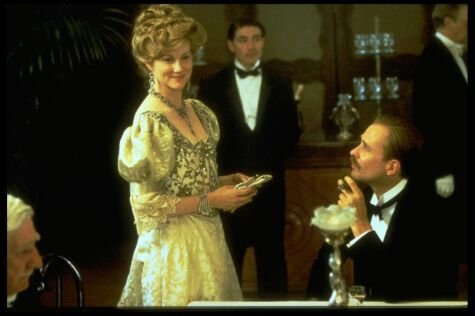
What is the one-sentence synopsis of your book?
“During the Gilded Age, poor, beautiful, and naïve Linda Lee marries the playboy son of a robber baron, a high-profile match she survives by learning important skills which she brings to her second marriage—to a talented but unknown gay composer from Indiana named Cole Porter.”
Will your book be self-published or represented by an agency?
If by this question you mean, do I have an agent? then yes, I have an agent, the amazing Sarah Burnes at the Gernert Company.
How long did it take you to write the first draft of your manuscript?
Still working on the first draft.
What other books would you compare this story to within your genre?
It’s got an outer and inner frame, and there’s a bit of archival detective work going on, a bit like A.S. Byatt’s Possession.
Maybe it’s also a bit like Laura Moriarty’s The Chaperone, which I read this summer and loved to death.
This isn’t a novel, but it definitely inspired me: Coco Before Chanel. A possible backup title to my book might be Linda Before Cole. Or Cole Because of Linda Before Cole.
Who or what inspired you to write this book?
There’s a little-discussed anecdote in every Cole Porter biography: he blew up his wife’s mansion in the Berkshires when she passed away. Not only that, he moved his bachelor’s cottage onto the foundation and expanded it to the mansion that’s there today.
His biographers all say Cole did this out of grief. I have other ideas.
What else about your book might pique the reader’s interest?”
In the course of doing research for the novel, I discovered that 86 volumes of her personal scrapbooks were held at Harvard. I’ve made two research trips to the Houghton Library to study them.
And now I’m tagging four more writers. I wanted to keep it local; these are all writers who live within an hour of my house in Muncie, Indiana. You can read about the books they’re working on next week!
Be Interested in What Other People are Doing
CW Programs Literary Citizenship Teaching WritingSo, now I have three blogs.
#amnoveling, which I use for my novel-writing class. (Go there now and read my students’ posts about their favorite novels and their writing regimens.)
and now one for Literary Citizenship.
A Story about Creativity
Teaching WritingA long time ago, I was asked to be a part of a study about Creativity. I’m not supposed to reveal who sponsored this study, but suffice it to say it was well funded. Let’s call them the Company.
The Company sent me 50 poems, 50 stories, and 50 essays by 8th graders and said, “Using whatever criteria you desire, arrange each pile from Most Creative to Least Creative. In the top right hand corner, write a big ‘1’ on the Most Creative piece and so on down to 50. Then send the stacks back to us.” Continue reading
Last Lecture: What matters more: Story or Sentence?
Teaching WritingEvery time I teach novel writing, I end the semester with a “Last Lecture” on a topic that’s been on my mind all semester long. Last spring, I wrote about learning to self-identify as a writer; this post, “Am I Writer?” has been viewed about 1,500 times. And Google Analytics tells me that people spend an average of eight minutes on this post–which is not that surprising when you consider how urgently people need an answer to that question. This semester, I’ve decided to write about whether a novelist should focus more on The Story or The Sentence.
Kameron and Kayla won my “Most Words Drafted Contest”? Why? What set them apart?
Both wrote scene-driven fiction with lots of dialogue. They took my advice and “sketched” their novels, temporarily suspending concern for “good writing” at the sentence level and focused on “getting the story down.” Continue reading
Why Do Writers Need Letters of Recommendation?
CW Programs WritingToday, I got this question: “How do I go about getting Letters of Recommendation for places like Breadloaf and Yaddo? I didn’t get an MFA. I’m older than the average Bright Young Thing applicant. Might we question the very system that requires LORs in the first place?”
This is a really good question. (You can read the question verbatim here, in the comments section.)
I just checked my Google Analytics and discovered that “MFA FAQ: the LOR” is the #1, most-read blog post at The Big Thing. Viewed about 2000 times since I posted it in Oct. 2011, it was composed with a college-age student in mind, someone applying to MFA programs for the first time. But I realize that lots of people need LORs—even me!
So, here’s the advice I gave.
I know what you’re talking about. It’s much harder to get letters when you’ve been out of school for awhile. Actually, the other day I was thinking about applying for a fellowship, but I had a hard time coming up with three writers familiar enough with my work to do a letter for me. Most of the writers I know are 25 years old. It’s also hard to find writers willing to blurb your book or write you a letter for academic positions.
Like you, I hate asking for letters and blurbs. Because I know how much time it takes to do them well.
A few years ago, I realized that I was going to have to start making it part of my “job” as a writer to know other writers, to be a part of a literary community, basically “to know people.” I don’t like to call it “networking,” but it is something I do more consciously now than I did 10 years ago.
If you’d like to go to Breadloaf, Yaddo, etc., let me suggest some possibilities for you that don’t involve dismantling the system:
–Ask the editors of the magazines where you publish work to vouch for you.
–Go to a writers conference like the Midwest Writers Workshop (I’m on the committee) or the Pacific Northwest Writers Association conference or the Imagination conference, just to name a few. If you have the opportunity to have your work read by an author there, jump on it.
–Take a class (IRL or online) via a writers’ center, such as The Writers Center of Indiana or Grub Street or The Lighthouse Writers Workshop. Your instructors can then write letters for you.
–Or maybe through one of these experiences, you’ll develop a friendship with another writer with whom you can trade work. If that person has some credentials, maybe they can write a letter for you when you need one.
–After checking out your blog and the subject of the book you’re working on, I’d suggest proposing a WWII-themed or historical fiction/nonfiction panel for AWP. Write to people you admire who might potentially be able to blurb your book or write LORs for you and ask them to be on that panel.
–Also, it has never been easier to “know” writers via social media. Some of my students have formed mentor-like relationships with writers they’ve met on Twitter, Facebook, or blogs. You have a blog. Have you met people via your blog? Do you comment on other people’s blogs? Are you part of an online conversation, or do you feel like you’re posting into a vacuum?
–If you practice even some of these principles of Literary Citizenship, you will get to know people. I guarantee it.
Also, here’s this: I write a lot of letters for people trying to go to places like Yaddo and Breadloaf, know lots of people who try to get into those places, people who are young and sexy and/or well connected, and they often can’t get in either. We’re in a really competitive field, as you know.
But maybe what you’re really asking about is WHY DO WE NEED LETTERS AT ALL? Why can’t the work speak for itself?
Well, here are some reasons.
–Because LORs play an important role in the vetting process.
–Because they help to weed out (but do not totally eliminate) candidates who might be crazy, dangerous, ill prepared, etc.
–Because when you’ve got 300 candidates for 10 spots, you really do need to weigh as many factors as possible, and taking into account the word of someone who knows candidate really does help.
–Because LORs are basically the same thing as the old-fashioned Letter of Introduction. When Hemingway was heading to Paris, he asked Sherwood Anderson to write him a letter of introduction so he could meet Gertrude Stein, and Anderson obliged–one of the reasons Hemingway’s criticism of Anderson in Torrents of Spring was (to me) a huge betrayal.
–Because if you’re Gertrude Stein, or Breadloaf, or Yaddo, and there are all these people who want to come into your house, how do you decide who to let in? You can’t just open the door. That’s probably not safe or practical. You have to figure out a way to screen, and it’s just human nature to ask someone, “So, you know X, right? What do you think?”
–Because this is how we apply for jobs, too, by offering up a list of names of people who can vouch for us.
I hope I don’t sound patronizing. I’m sure you understand all this. I know how frustrating it is when you feel like certain clubs are closed to you. Oh, do I know that feeling. But my advice is: don’t let yourself get angry and resentful. Think of it as a challenge, as part of the process of becoming the writer you want to be.
We can rail and rail about the adage, “It’s who you know,” or we can accept that it’s just a reality that’s never going to go away and prepare ourselves to start knowing people–not in a skeezy, opportunistic way, but rather in a professional, positive, way.
The more good people we have in our lives, the better, right?
10 Things You Should Know about the Midwest Writers Workshop
Writing1. The Midwest Writers Workshop, or MWW for short, happens in my town! A few miles from my house! Muncie, Indiana, July 26-28, 2012.
2. MWW’s faculty this year includes a Pulitzer finalist, a paranormal romance YA author, four literary agents, a best-selling author of cozy mysteries, a poet/memoirist/indie publisher, and quite a few long-time editors and publishing professionals. Including Jane Friedman, who I’ve been following for three years (long before I moved to Muncie) and who I credit with saving my writerly butt from literary oblivion.
3. MWW has been around for a long time: 39 years! Last year, I was on the faculty. This year, I’m the newest member of the Planning Committee. Some of the committee members have been working to make this conference happen for over 35 years. You can read more about the history here.

4. MWW is the only writers conference I know of that offers on-site, totally free “social media consulting”—a drop-in tutoring center where you can get your Facebook/Twitter/blogging act together.
5. Veronica Roth, author of the best-selling, dystopian YA novel Divergent (which is really, really good) got her start at MWW. My fellow committee member Kelsey Timmerman also got his start at MWW. He attended a few years ago, pitched his idea to an agent, and thus his book became a reality: Where Am I Wearing: A Global Tour to the Countries, Factories, and People That Make Our Clothes. There are many other success stories.
6. Remember when I wrote about how anxiety-inducing AWP is? Anxiety + Community = AWP. MWW, on the other hand, is small, intimate, encouraging—nothing at all like AWP. It’s open to anyone. You don’t have to apply to get in or secure a letter of recommendation.
7. Remember when I wrote this post about how much I hate it when people ask me “How do I get published?” Well, here is your answer: Expand your circles! Get thyself to a writers’ conference! Here are a few other good reasons to go to a writer’s conference.

8. If you read this blog because you teach creative writing, listen up. If you have strong students, don’t think that sending them to an MFA program is the only way to help them pursue their dream. Send them to MWW. Remember a few months ago, I asked, Should we make it our business to teach the business of creative writing? The response to that post was a resounding, Yes. Writers conferences are one way we can teach our students about the “biz.”
9. If you read this blog because you’re an aspiring writer, listen up: I know you write and read and edit alone. You go online to find community and advice about what comes next. But you need to find community IRL. You need to stop Googling “How do I publish a book?” You need to fork out some dollars, because believe me, there’s nothing like spending some money to help you start taking yourself a little more seriously. You need to actually show up to an actual brick and mortar building where others like yourself have also shown up.
10. I know I said this already, but this conference is in Indiana. Not in Boston or New York or even the bucolic Florida Keys. It’s in Muncie, Indiana. One reason why I left Indiana 20 years ago is that I believed you HAD to leave Indiana in order to be a writer (or an artist of any kind), but I came back two years ago because I wanted to help the next generation of Hoosier artists realize their dreams and become the people they want to be. When you’re poor or working class or live in a place where there isn’t a lot of literary activity, it’s not that easy to imagine yourself “becoming a writer.” That’s why bringing the publishing world to Indiana matters. A lot.
Will I see you there? This summer? Next summer for the 40th anniversary? I hope so. And do you know someone in the Midwest who wants to be a writer? Send them this link. Thank you.


